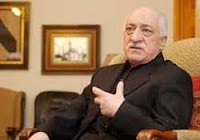The 7/7 attacks on the London transportation system in 2005, perpetrated by Muslims raised in the UK, shocked the British government, many Muslims and the wider civil society.
Subsequently, the UK’s multiculturalist policy consensus has been subject to intensive criticism. Politicians and some parts of civil society have challenged a perceived “separatism” within Muslim communities. These people emphasize a need for shared values and social cohesion and advocate the promotion of “moderate Islam” and “moderate Muslims.”
However, in legitimizing simplistic distinctions between “good” (understood as liberal or modernist) and “bad” or “suspect” (understood as traditionalist, radical or fundamentalist) Muslims and forms of Islam, there is a risk of crossing the line between the condemnation of terrorist crimes carried out in the name of religion and the criminalization, or at least the social marginalization, of religious conservatism. This approach is most likely to undermine the development of inclusive approaches to working towards the common good. What are needed instead are authentically Islamic approaches that can offer resources and challenges to government, Muslims and civil society. Even from a pragmatic perspective, this approach would offer the best means of combating the attraction of young Muslims to highly polarized worldviews.
 |
| Fethullah Gulen |
Gülen does not take refuge in any invocations of an idealized past as a solution to the weakness of Islam in the present. Rather, he seeks to provide a clear analysis of the kind of global and historical context that has led some Muslims into seeing the world in terms of an epic, militarized global struggle between the almost Manichean duality of dar-al Islam (land of Islam) and dar-al harb (land of war).
What is creative and potentially significant in Gülen’s teachings is that the “middle way” that he advocates is not a road of mere ‘compromise’ but is one that is rooted in an understanding and application of traditional Islam in which Islam is itself identified as a middle way.
Hakan Yavuz summarizes matters more generally: “Gülen’s views on the precepts of Islam are pragmatic and contemporary without being liberal.” It is precisely because it is not “liberal” in the populist or modernist sense that Gülen’s teaching is capable of resonating with those Muslims of more traditionalist orientation, drawing as it does upon a strong commitment to Islamic sources and Ottoman history. At the same time, its contextual focus contributes to the conditions that facilitate dialogue between such traditionalists and those of a more contemporary and secular outlook, as well as with those of other faiths. In other words, Gülen is arguing for a society in which a rich and deep-rooted religious integrity is something that can challenge the kind of dichotomous and Manichean worldviews that lead to terrorism. It is this kind of perspective that can promote the development of an inclusive civility.
In this way, Fethullah Gülen is able to project an image of Islam that indicates the kinds of contributions to civility and the common good that Islam and Muslims can make in a multi-ethnic, multi-cultural and multi-religious society of the kind that the UK has become.
It is precisely at this time of transition in this particular corner of the world that Gülen’s teachings can play such an important role. This is because Gülen is one “who knows how to argue the case on Islamic grounds” and can thus “redirect the religious fervor of hot-headed young men” from potentially violent worldviews towards a self-critical renewal. Gülen’s teaching is not modernist, so it cannot be seriously denounced as a sell-out to secularism; nor is it “reformist” in the sense that many mean by this term. Instead, what Gülen’s teaching offers is a religious devotion that looks for the renewal of Muslims through deeper engagement with the sources of Islam.
Of course, the potential of Gülen’s teachings in the UK is limited by the fact that the primary face of Islam and of organized Muslim community groups in the UK is South Asian, rather than Turkish (or Arabic). But in view of the increasingly important role of Turkey vis-à-vis the European continent and its possible future entry into full membership in the European Union, this heritage is likely to play a more important part in emergent Muslim identities in Europe. And in the setting of the transitional context for Islam and Muslims that is Britain post-7/7, the teaching of Gülen can offer a secure and robust Islamic basis for challenging the equation of Islam and Muslims with terrorism and extremism.
* Paul Weller is professor of inter-religious relations at the University of Derby and vice chair of the Multi-Faith Centre at the same university.
Published on Today's Zaman, 01 November 2007, Thursday
